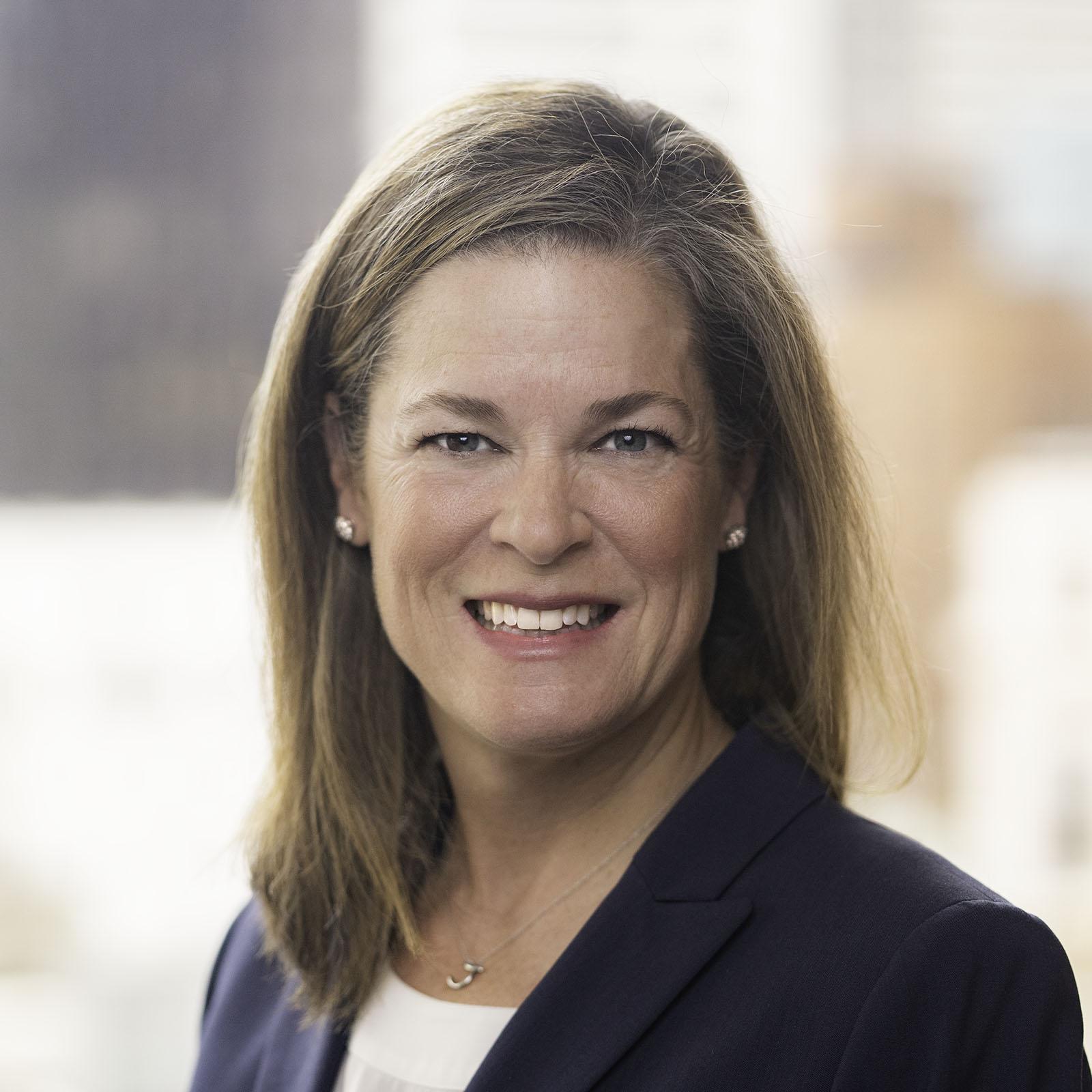
Hope and Opportunities in a Time of Extremes
- Courriel
-
Signet
-
Imprimer
Disponible en anglais seulement
Amid a steady stream of news about extreme temperatures and natural disasters, Melissa Fifield, the head of the BMO Climate Institute, distinguishes between being optimistic about climate change and having hope.
"Being optimistic about climate change is believing the status quo will somehow, in some way, lead to the best outcome. Just sit back and watch," she says. "By contrast, being hopeful means that even though the future isn't clear, we can help shape it with practical actions and good partnerships with the right kind of organizations."
Listen to our ~6-minute episode
Sustainability Leaders podcast is live on all major channels including Apple, Google and Spotify.
Michael Torrance:
Welcome to Sustainability Leaders. I'm Michael Torrance, chief Sustainability Officer with BMO Financial Group. On this show, leading sustainability practitioners explore how this rapidly evolving field of sustainability is impacting global investment, business practices, and our world.
Speaker 2:
The views expressed here are those of the participants and not those of Bank of Montreal, it's affiliates or subsidiaries.
Melissa Fifield:
My name is Melissa Fifield and I'm the head of the BMO Climate Institute. Today's episode of Sustainability Leaders is going to be a quick hit.
I'm getting ready to travel from where I live in the Bay Area to Toronto. Sibos is taking place there. Sibos is a marquee financial services event, and I'll be moderating a panel on ways to multiply the impact of sustainability efforts. After that, I'll be in New York for Climate Week, the largest climate-focused gathering of its kind.
I'm looking forward to connecting with a lot of old friends, and I'm eager to learn about new opportunities and solutions.
But ... I must be honest. Usually when sustainability professionals gather for climate events, there' s a sense of unease in the back of everyone's mind. The scale of the climate challenge is growing. far. too. quickly.
Unusually hot and dry weather conditions have contributed to wildfires across North America. We already know July was globally the hottest month on record.
In a previous show, my colleague at the Climate Institute, George Sutherland, discussed Canadian wildfires. By June, they had burned a record amount of land - not even halfway through the fire season.
Just days after we published the show, fires broke out on the Hawaiian island of Maui. They would become the deadliest wildfire in modern U.S. history.
So, it's difficult to feel optimistic about the climate as I head to Toronto and New York. How can anyone feel optimism after learning about the grim toll of recent natural disasters and extreme weather?
But I do feel hopeful. This might sound confusing or even contradictory but hear me out.
The San Francisco-based writer and cultural historian Rebecca Solnit said: "Optimism is really confidence that everything will be fine, and if everything is going to be fine, nothing is required of us." She went on to say: "Hope, for me, is facing the uncertainty of the future, the fact that it's being created by what we do or fail to do in the present..."
BMO started the Climate Institute in 2021 to combine expertise in finance together with other disciplines and accelerate climate solutions. Since then, we’ve seen climate challenges grow more complex. But opportunities in the energy transition have also grown. We’re finding reasons to be hopeful.
• Take EV adoption, for example. EV sales in the United States increased 55% last year, according to the IEA. The U.S. EV market is the third largest in the world, and its market share is expected to double to 20% by the end of the decade. This is significant because the transportation sector generates the largest share of U.S. greenhouse gas emissions.
• When we think globally, the buildings where we live, study, and work are responsible for a quarter of emissions. There's a growing acceptance among owners and asset managers that deep retrofits need to happen. Earlier this year, BMO collaborated with the Canada Infrastructure Bank on a first-of-its-kind retrofit solution to provide clients greater access to impact capital.
• Another area is sustainable finance. BMO is a global leader in sustainable finance, with a goal of deploying C$300 billion in capital by 2025 to clients pursuing sustainable outcomes. The pipeline is robust.
• I'm probably most hopeful about an area where I think financial institutions can make a big climate impact: partnerships. It can take time to find common ground with other organizations and people. But I believe partnerships are the only way to achieve the system-level change needed to tackle the climate crisis.
I experienced the power of partnerships first-hand. As a founding member of the Sustainable Apparel Coalition and the Apparel Impact Institute, I facilitated partnerships between competitors, enabling them to leverage their collective voice.
At BMO, I'm looking forward to supporting the bank's commitment to climate justice in our communities. The Climate Institute has the capability to convene resources and partners, and I plan to use it.
My team and I are dedicated to conceiving of bold yet practical ways to help BMO's Climate Ambition to be our clients' lead partner in the transition to a net-zero world.
The year 2050 may seem like a distant future. But many of us are already feeling and witnessing the damaging effects of climate change. The immensity of the challenge requires us to begin taking practical action today. Can we achieve a net-zero world I'm hopeful.
Michael Torrance:
Thanks for listening to Sustainability Leaders. Visit us at bmo.com/sustainabilityleaders. You can listen and subscribe free to our show on Apple Podcasts or your favorite podcast provider, and we'll greatly appreciate a rating and review and any feedback that you might have. Our show and resources are produced with support from BMO's marketing team and Puddle Creative. Until next time, I'm Michael Torrance. Have a great week.

Hope and Opportunities in a Time of Extremes
Chef, Institut pour le climat de BMO
Melissa Fifield dirige l’Institut pour le climat de BMO, un centre d’expertise qui cherche à accélérer les solutions climatiques en…
Melissa Fifield dirige l’Institut pour le climat de BMO, un centre d’expertise qui cherche à accélérer les solutions climatiques en…
VOIR LE PROFIL COMPLET-
Temps de lecture
-
Écouter
Arrêter
-
Agrandir | Réduire le texte
Disponible en anglais seulement
Amid a steady stream of news about extreme temperatures and natural disasters, Melissa Fifield, the head of the BMO Climate Institute, distinguishes between being optimistic about climate change and having hope.
"Being optimistic about climate change is believing the status quo will somehow, in some way, lead to the best outcome. Just sit back and watch," she says. "By contrast, being hopeful means that even though the future isn't clear, we can help shape it with practical actions and good partnerships with the right kind of organizations."
Listen to our ~6-minute episode
Sustainability Leaders podcast is live on all major channels including Apple, Google and Spotify.
Michael Torrance:
Welcome to Sustainability Leaders. I'm Michael Torrance, chief Sustainability Officer with BMO Financial Group. On this show, leading sustainability practitioners explore how this rapidly evolving field of sustainability is impacting global investment, business practices, and our world.
Speaker 2:
The views expressed here are those of the participants and not those of Bank of Montreal, it's affiliates or subsidiaries.
Melissa Fifield:
My name is Melissa Fifield and I'm the head of the BMO Climate Institute. Today's episode of Sustainability Leaders is going to be a quick hit.
I'm getting ready to travel from where I live in the Bay Area to Toronto. Sibos is taking place there. Sibos is a marquee financial services event, and I'll be moderating a panel on ways to multiply the impact of sustainability efforts. After that, I'll be in New York for Climate Week, the largest climate-focused gathering of its kind.
I'm looking forward to connecting with a lot of old friends, and I'm eager to learn about new opportunities and solutions.
But ... I must be honest. Usually when sustainability professionals gather for climate events, there' s a sense of unease in the back of everyone's mind. The scale of the climate challenge is growing. far. too. quickly.
Unusually hot and dry weather conditions have contributed to wildfires across North America. We already know July was globally the hottest month on record.
In a previous show, my colleague at the Climate Institute, George Sutherland, discussed Canadian wildfires. By June, they had burned a record amount of land - not even halfway through the fire season.
Just days after we published the show, fires broke out on the Hawaiian island of Maui. They would become the deadliest wildfire in modern U.S. history.
So, it's difficult to feel optimistic about the climate as I head to Toronto and New York. How can anyone feel optimism after learning about the grim toll of recent natural disasters and extreme weather?
But I do feel hopeful. This might sound confusing or even contradictory but hear me out.
The San Francisco-based writer and cultural historian Rebecca Solnit said: "Optimism is really confidence that everything will be fine, and if everything is going to be fine, nothing is required of us." She went on to say: "Hope, for me, is facing the uncertainty of the future, the fact that it's being created by what we do or fail to do in the present..."
BMO started the Climate Institute in 2021 to combine expertise in finance together with other disciplines and accelerate climate solutions. Since then, we’ve seen climate challenges grow more complex. But opportunities in the energy transition have also grown. We’re finding reasons to be hopeful.
• Take EV adoption, for example. EV sales in the United States increased 55% last year, according to the IEA. The U.S. EV market is the third largest in the world, and its market share is expected to double to 20% by the end of the decade. This is significant because the transportation sector generates the largest share of U.S. greenhouse gas emissions.
• When we think globally, the buildings where we live, study, and work are responsible for a quarter of emissions. There's a growing acceptance among owners and asset managers that deep retrofits need to happen. Earlier this year, BMO collaborated with the Canada Infrastructure Bank on a first-of-its-kind retrofit solution to provide clients greater access to impact capital.
• Another area is sustainable finance. BMO is a global leader in sustainable finance, with a goal of deploying C$300 billion in capital by 2025 to clients pursuing sustainable outcomes. The pipeline is robust.
• I'm probably most hopeful about an area where I think financial institutions can make a big climate impact: partnerships. It can take time to find common ground with other organizations and people. But I believe partnerships are the only way to achieve the system-level change needed to tackle the climate crisis.
I experienced the power of partnerships first-hand. As a founding member of the Sustainable Apparel Coalition and the Apparel Impact Institute, I facilitated partnerships between competitors, enabling them to leverage their collective voice.
At BMO, I'm looking forward to supporting the bank's commitment to climate justice in our communities. The Climate Institute has the capability to convene resources and partners, and I plan to use it.
My team and I are dedicated to conceiving of bold yet practical ways to help BMO's Climate Ambition to be our clients' lead partner in the transition to a net-zero world.
The year 2050 may seem like a distant future. But many of us are already feeling and witnessing the damaging effects of climate change. The immensity of the challenge requires us to begin taking practical action today. Can we achieve a net-zero world I'm hopeful.
Michael Torrance:
Thanks for listening to Sustainability Leaders. Visit us at bmo.com/sustainabilityleaders. You can listen and subscribe free to our show on Apple Podcasts or your favorite podcast provider, and we'll greatly appreciate a rating and review and any feedback that you might have. Our show and resources are produced with support from BMO's marketing team and Puddle Creative. Until next time, I'm Michael Torrance. Have a great week.
Autre contenu intéressant

Le coût des risques climatiques dans le secteur agricole aux États-Unis

Making Renewable Energy Technology Accessible to Underserved Communities: GRID Alternatives in Conversation

Comptabilisation du carbone : Comment renforcer les plans climatiques des entreprises

Les progrès de la technologie des batteries alimentent l’optimisme au sujet de l’industrie des VE

Les femmes jouent un rôle de premier plan dans le domaine du climat et du développement durable

Le rôle de l’exploitation minière responsable dans la transition vers les énergies propres : entretien avec Rohitesh Dhawan, chef de la direction de l’ICMM
Décloisonner le développement durable pour l’intégrer aux fonctions de base

Températures extrêmes : comment les villes nord-américaines amplifient-elles le changement climatique?

Questions climatiques : rôle de plus en plus important des hauts dirigeants

Transforming the Textile Industry: Apparel Impact Institute in Conversation
Trois idées inspirées de la Semaine du climat pour passer à l’action à la COP28

Protecting Outdoor Spaces: The Conservation Alliance in Conversation

Building Meaningful Connections with Nature: Parks California in Conversation

Comment les investissements dans le captage du carbone peuvent générer des crédits carbone

Free, Prior and Informed Consent (FPIC): Mark Podlasly in Conversation

Comment les concessionnaires automobiles contribuent à la transition vers la carboneutralité

Les feux de forêt au Canada brûlent toujours: explications d’experts

Quick Listen: Michael Torrance on Empowering Your Organization to Operationalize Sustainability

Quick Listen: Darryl White on the Importance of US-Canada Partnership

North America’s Critical Minerals Advantage: Deep Dive on Community Engagement

Evolving Mining for a Sustainable Energy Transition: ICMM CEO Rohitesh Dhawan in Conversation

BMO Equity Research on BMO Radicle and the World of Carbon Credits

Public Policy and the Energy Transition: Howard Learner in Conversation

Taskforce on Nature-Related Financial Disclosure (TNFD) – A Plan for Integrating Nature into Business

ESG Trends in the Base Metal and Diversified Mining Industries: BMO Equity Research Report

COP27 : Les problèmes de sécurité énergétique et l’incertitude économique ralentiront-t-ils la transition climatique?

RoadMap Project: An Indigenous-led Paradigm Shift for Economic Reconciliation

On-Farm Carbon and Emissions Management: Opportunities and Challenges

Intégration des facteurs ESG dans les petites et moyennes entreprises : Conférence de Montréal

Investment Opportunities for a Net-Zero Economy: A Conversation at the Milken Institute Global Conference

How Hope, Grit, and a Hospital Network Saved Maverix Private Capital Founder John Ruffolo

Hydrogen’s Role in the Energy Transition: Matt Fairley in Conversation

Key Takeaways on Ag, Food, Fertilizer & ESG from BMO’s Farm to Market Conference

Building an ESG Business Case in the Food Sector: The Food Institute

Financer la transition vers la carboneutralité : une collaboration entre EDC et BMO

Refonte au Canada pour un monde carboneutre : Conversation avec Corey Diamond d’Efficacité énergétique Canada

The Role of Hydrogen in the Energy Transition: FuelCell Energy CEO Jason Few in Conversation

Tackling Climate Change in Metals and Mining: ICMM CEO Rohitesh Dhawan in Conversation

Why Changing Behaviour is Key to a Low Carbon Future – Dan Barclay

The Post 2020 Biodiversity Framework – A Discussion with Basile Van Havre

Using Geospatial Big Data for Climate, Finance and Sustainability

Part 2: Talking Energy Transition, Climate Risk & More with Bloomberg’s Patricia Torres

Part 1: Talking Energy Transition, Climate Risk & More with Bloomberg’s Patricia Torres

The Global Energy Transition: Darryl White & John Graham Discuss

The Risk of Permafrost Thaw on People, Infrastructure & Our Future Climate

Climate Change & Flood Risk: Implications for Real Estate Markets

Director of ESG at BMO Talks COP26 & the Changing ESG Landscape

Candidature du Canada pour accueillir le nouveau siège social de l'ISSB

Comprendre la Journée nationale de la vérité et de la réconciliation

Comprendre la Journée nationale de la vérité et de la réconciliation

Combler l’écart de richesse entre les groupes raciaux grâce à des actions mesurables

Biggest Trends in Food and Ag, From ESG to Inflation to the Supply Chain

Understanding Biodiversity Management: Best Practices and Innovation

The Changing Face of Sustainability: tentree for a Greener Planet

Favoriser l’autonomisation dans une perspective d’équité raciale et de genre

Episode 31: Valuing Natural Capital – A Discussion with Pavan Sukhdev

Episode 29: What 20 Years of ESG Engagement Can Teach Us About the Future

Episode 28: Bloomberg: Enhancing ESG Disclosure through Data-Driven Solutions

Episode 27: Preventing The Antimicrobial Resistance Health Crisis

Episode 25: Achieving Sustainability In The Food Production System

Episode 23: TC Transcontinental – A Market Leader in Sustainable Packaging

Episode 16: Covid-19 Implications and ESG Funds with Jon Hale

Episode 13: Faire face à la COVID-19 en optant pour des solutions financières durables

Épisode 09 : Le pouvoir de la collaboration en matière d'investissement ESG

Épisode 08 : La tarification des risques climatiques, avec Bob Litterman

Épisode 07 : Mobiliser les marchés des capitaux en faveur d’une finance durable

Épisode 06 : L’investissement responsable – Tendances et pratiques exemplaires canadiennes

Épisode 04 : Divulgation de renseignements relatifs à la durabilité : Utiliser le modèle de SASB

Épisode 03 : Taxonomie verte: le plan d'action pour un financement durable de l'UE

Épisode 02 : Analyser les risques climatiques pour les marchés financiers












